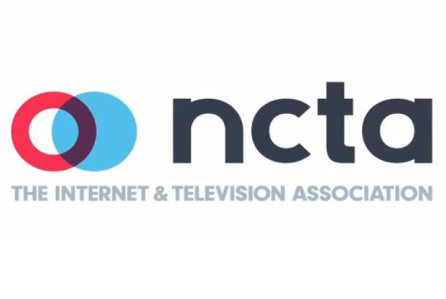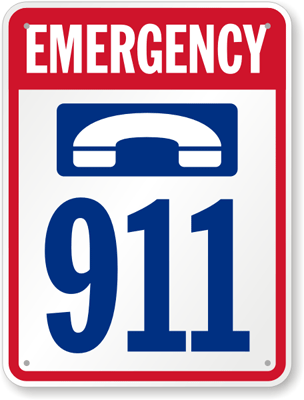 WASHINGTON (Reuters) – The U.S. Supreme Court on Monday refused a request by the Trump administration and the telecommunications industry to wipe away a lower court decision that had upheld Obama-era net neutrality rules aimed at ensuring a free and open internet, though the justices’ action does not undo the 2017 repeal of the policy.
WASHINGTON (Reuters) – The U.S. Supreme Court on Monday refused a request by the Trump administration and the telecommunications industry to wipe away a lower court decision that had upheld Obama-era net neutrality rules aimed at ensuring a free and open internet, though the justices’ action does not undo the 2017 repeal of the policy.
The high court decision not to throw out the 2016 U.S. Court of Appeals for the District of Columbia Circuit ruling leaves a legal precedent in place that could help net neutrality supporters in any future legal battle if that policy is ever re-introduced.
The rules championed by Democratic former President Barack Obama, intended to safeguard equal access to content on the internet, were opposed by President Donald Trump, a Republican.
The Trump administration and the telecom industry had wanted to erase the 2016 ruling even though the Republican-led Federal Communications Commission in December voted to repeal the net neutrality rules. The policy reversal went into effect in June.
The Supreme Court’s brief order noted that three of the court’s conservative justices – Clarence Thomas, Samuel Alito and Neil Gorsuch – would have thrown out the appeals court decision. Neither Chief Justice John Roberts nor new Trump appointee Brett Kavanaugh participated in the decision.
Industry trade group USTelecom, one of the groups that challenged the 2015 net neutrality rules, said the high court’s action was “not surprising.” USTelecom said it would “continue to support” the repeal “from challenges in Washington, D.C. and state capitals.”

Rosenworcel
FCC Commissioner Jessica Rosenworcel, a Democrat who backed the net neutrality order in 2015, said on Twitter that the commission had “actually petitioned the Supreme Court to erase history and wipe out an earlier court decision upholding open internet policies. But today the Supreme Court refused to do so.”
The Justice Department also has filed suit to block California’s state net neutrality law from taking effect in January. The state agreed in October to delay enforcement of the law pending appeals of the net neutrality reversal.
The FCC voted 3-2 in December along party lines to reverse the rules adopted under Obama that had barred internet service providers from blocking or throttling traffic, or offering paid fast lanes, also known as paid prioritization.
The new rules, which gave internet service providers greater power to regulate the content that customers access, are now the subject of a separate legal fight after being challenged by many of the groups that backed net neutrality.
The net neutrality repeal was a win for providers like Comcast Corp, AT&T Inc and Verizon Communications Inc. It was opposed by internet companies like Facebook Inc, Amazon.com Inc and Alphabet Inc, which have said the repeal could lead to higher costs.
Reporting by Lawrence Hurley; Additional reporting by David Shepardson; Editing by Will Dunham


 Subscribe
Subscribe WASHINGTON (Reuters) – Four industry groups representing major internet providers and cable companies filed suit on Wednesday seeking to block California’s new law to mandate net neutrality rules.
WASHINGTON (Reuters) – Four industry groups representing major internet providers and cable companies filed suit on Wednesday seeking to block California’s new law to mandate net neutrality rules. U.S. Attorney General Jeff Sessions said on Sunday in a statement that the “the California legislature has enacted an extreme and illegal state law attempting to frustrate federal policy.”
U.S. Attorney General Jeff Sessions said on Sunday in a statement that the “the California legislature has enacted an extreme and illegal state law attempting to frustrate federal policy.” California Attorney General Xavier Becerra said on Sunday the Trump Administration was ignoring “millions of Americans who voiced strong support for net neutrality rules.”
California Attorney General Xavier Becerra said on Sunday the Trump Administration was ignoring “millions of Americans who voiced strong support for net neutrality rules.” WASHINGTON (Reuters) – AT&T will pay $5.25 million to settle a U.S. investigation after two outages in 2017 prevented about 15,000 callers from making emergency “911” calls, the company and a federal regulator said last week.
WASHINGTON (Reuters) – AT&T will pay $5.25 million to settle a U.S. investigation after two outages in 2017 prevented about 15,000 callers from making emergency “911” calls, the company and a federal regulator said last week. (Reuters) – Comcast Corp offered $65 billion on Wednesday for 21st Century Fox’s media assets, emboldened by AT&T prevailing over the Trump administration’s attempt to block a merger with Time Warner, Inc..
(Reuters) – Comcast Corp offered $65 billion on Wednesday for 21st Century Fox’s media assets, emboldened by AT&T prevailing over the Trump administration’s attempt to block a merger with Time Warner, Inc.. Shares of Comcast, Fox and Disney were barely changed in after-hours trade.
Shares of Comcast, Fox and Disney were barely changed in after-hours trade.